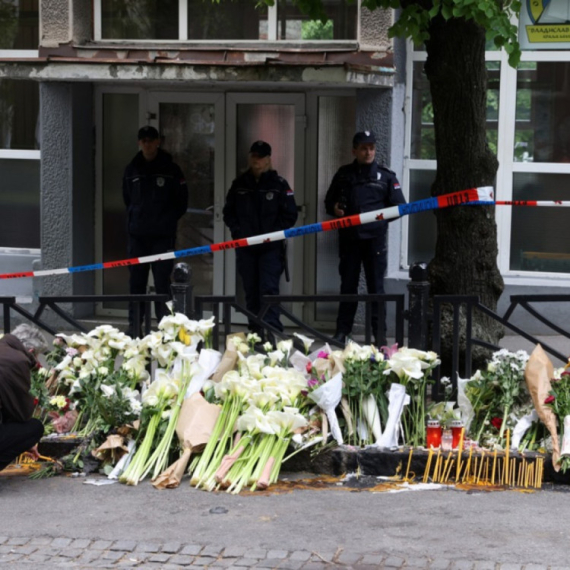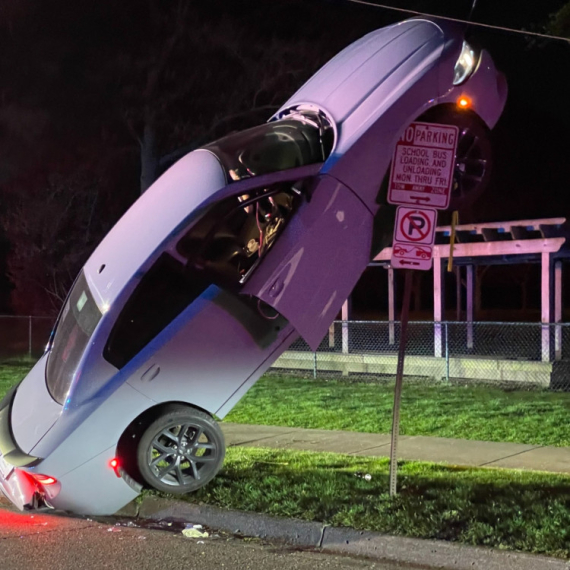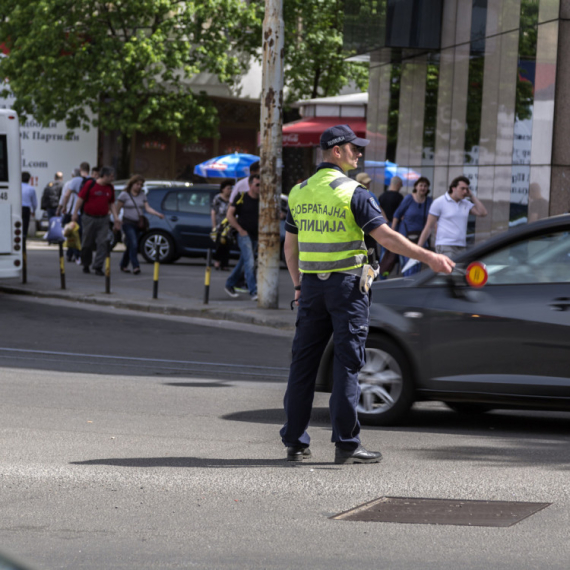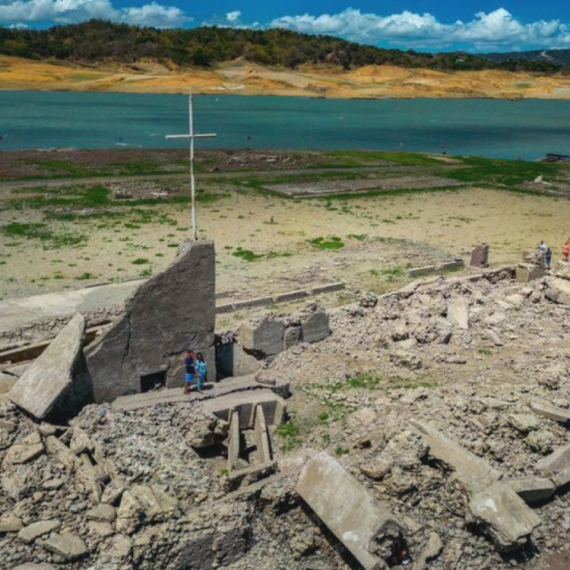Macedonian police law faces uncertain implementation
The main Albanian opposition party in Macedonia threatened that it would not implement the new police law.
Thursday, 15.11.2007.
10:23

The main Albanian opposition party in Macedonia threatened that it would not implement the new police law. They said they would take such steps yesterday unless its suggestions regarding amendments to the law were taken into consideration. Macedonian police law faces uncertain implementation The Democratic Union for Integration, DUI, says it will not implement the law in the municipalities under its control because the government has not properly included the party in discussion of amendments to the law. The government promised to do this a year ago when DUI deputies voted for the law. Since the party was not consulted about amendments it has not been able to prepare and submit proposals to the relevant parliamentary commission, DUI Vice President Musa Xhaferi said. “It is politically incorrect to expect the DUI to implement the law when the government did not include us in its preparation,” the Macedonian daily, “Dnevnik,” quoted Xhaferi as saying in its Wednesday edition. The DUI objects principally to the way the appointment of local police commanders is regulated under the new law. The law stipulates that police commanders should be elected by municipal councils on the basis of proposals made by the Interior Ministry, but it does not provide for municipal councils to have any authority over dismissals. The DUI wants to see both appointments and dismissals in the hands of the municipal councils. Police spokesman Ivo Kotevski said a possible DUI boycott of the law could only harm citizens. “We have presented 64 amendments to the parliamentary commission, and if anyone felt it had to react, he had an opportunity to do so,” Kotevski told Balkan Insight on Wednesday. He said the Interior Ministry remains open to possible further suggestions and he appealed to the DUI to adopt a constructive approach. The law, which was enacted in September 2006 and is designed to decentralize control of the police, came into force last weekend following a lengthy preparation period. Its object is to increase cooperation between local communities and the police and raise levels of trust in the police, especially in former conflict zones, which are predominantly populated by Albanians. The law was part of the Ohrid framework accord that ended the six-month armed conflict in 2001 between Albanian guerrillas and Macedonian security forces. The DUI is largely made up of former guerrillas.
Macedonian police law faces uncertain implementation
The Democratic Union for Integration, DUI, says it will not implement the law in the municipalities under its control because the government has not properly included the party in discussion of amendments to the law.The government promised to do this a year ago when DUI deputies voted for the law.
Since the party was not consulted about amendments it has not been able to prepare and submit proposals to the relevant parliamentary commission, DUI Vice President Musa Xhaferi said.
“It is politically incorrect to expect the DUI to implement the law when the government did not include us in its preparation,” the Macedonian daily, “Dnevnik,” quoted Xhaferi as saying in its Wednesday edition.
The DUI objects principally to the way the appointment of local police commanders is regulated under the new law.
The law stipulates that police commanders should be elected by municipal councils on the basis of proposals made by the Interior Ministry, but it does not provide for municipal councils to have any authority over dismissals.
The DUI wants to see both appointments and dismissals in the hands of the municipal councils.
Police spokesman Ivo Kotevski said a possible DUI boycott of the law could only harm citizens.
“We have presented 64 amendments to the parliamentary commission, and if anyone felt it had to react, he had an opportunity to do so,” Kotevski told Balkan Insight on Wednesday.
He said the Interior Ministry remains open to possible further suggestions and he appealed to the DUI to adopt a constructive approach.
The law, which was enacted in September 2006 and is designed to decentralize control of the police, came into force last weekend following a lengthy preparation period. Its object is to increase cooperation between local communities and the police and raise levels of trust in the police, especially in former conflict zones, which are predominantly populated by Albanians.
The law was part of the Ohrid framework accord that ended the six-month armed conflict in 2001 between Albanian guerrillas and Macedonian security forces. The DUI is largely made up of former guerrillas.




























































Komentari 0